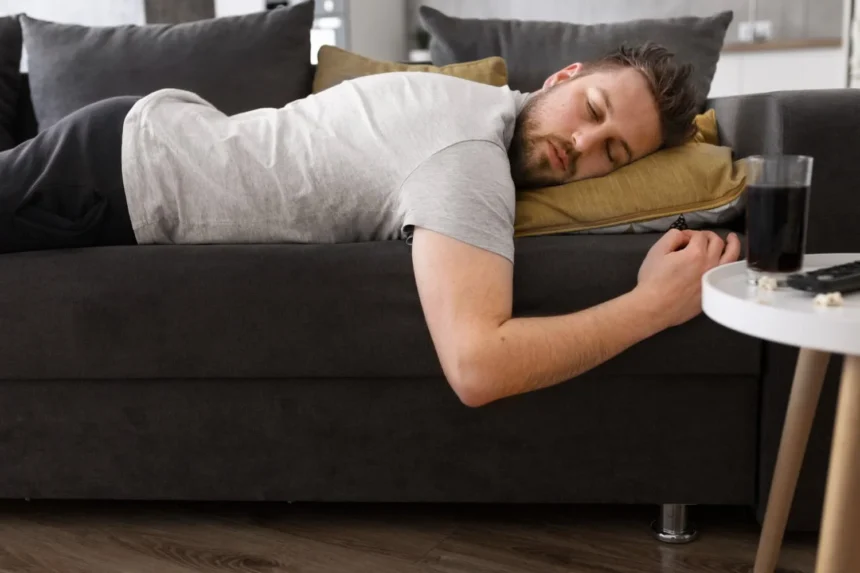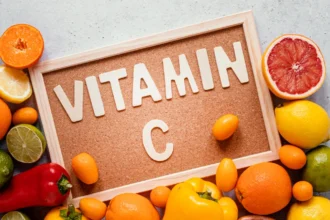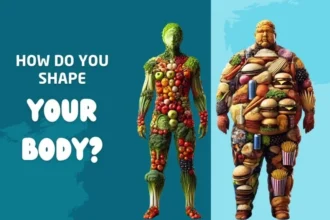After a night of drinking, it’s natural to wish you could quickly reverse the effects of alcohol—whether to drive home safely, attend an important meeting, or just feel better overall. However, it’s important to understand that there is no scientifically proven method to instantly get sober. The only factor that lowers your blood alcohol content (BAC) is time. Your liver requires time to metabolize alcohol, and no quick fix can speed up this natural process. In fact, trying to accelerate your sobriety through shortcuts can be both ineffective and dangerous.
How Alcohol Works: The Science of Getting Sober
Understanding how your body processes alcohol is key to realizing why quick fixes for intoxication simply do not work. When you drink alcohol, it is rapidly absorbed into your bloodstream through the stomach and small intestine. From there, it travels to your liver, the primary organ responsible for metabolizing alcohol.
Your liver breaks down alcohol at a relatively constant rate, typically about one standard drink per hour. A “standard drink” in the United States contains about 14 grams of pure alcohol. This is roughly equivalent to:
- 12 ounces (355 ml) of regular beer (about 5% alcohol)
- 5 ounces (148 ml) of wine (about 12% alcohol)
- 1.5 ounces (44 ml) of distilled spirits (about 40% alcohol)
Importantly, nothing you do can significantly speed up this metabolic process. Your liver enzymes work at their own pace. While factors such as body weight and gender may influence how quickly you feel the effects of alcohol, they do not change the rate at which your liver eliminates it. This is why the only true way to sober up is to allow your body the time it needs.
How Alcohol Affects You: A Guide to Blood Alcohol Content (BAC)
| BAC Level | What You Might Feel & Experience | What It Means |
|---|---|---|
| Lightheaded (0.02% – 0.04% BAC) | Relaxed, slightly lightheaded, maybe a warm sensation | Your judgment may be a little off but you feel mostly normal. This is often the “socially lubricated” stage. |
| Buzzed (0.05% – 0.07% BAC) | More relaxed, less inhibited; feelings become intensified | You are likely buzzed. Your reasoning and memory may be slightly impaired and coordination starts to be affected. |
| Legally Impaired (0.08% – 0.10% BAC) | Euphoric yet tired; noticeably impaired balance, speech, vision, reaction time, and hearing | You are legally drunk in most US states. Your judgment and self-control are significantly impaired, making driving extremely dangerous. |
| Drunk (0.11% – 0.15% BAC) | The initial high fades and is replaced by feelings of anxiety, sadness, or discomfort; difficulty walking straight, slurred speech, and blurry vision | You are clearly drunk. Your motor skills are significantly impaired and your judgment is very poor. |
| Very Drunk (0.16% – 0.19% BAC) | Feeling very down, nauseous, dizzy, and disoriented | You experience severe intoxication. You are likely to be clumsy, have trouble remembering things, and your judgment is greatly impaired. |
| Dazed and Confused (0.20% – 0.24% BAC) | Dazed, confused, and disoriented; you may vomit and need help moving | You are at risk of blackouts and may not feel pain, which is dangerous. Assistance is needed to prevent injury. |
| Stupor (0.25% – 0.30% BAC) | Severely impaired mentally, physically, and sensorily; high risk of accidents | All functions are severely impaired. You are at very high risk of injury and may pass out suddenly. |
| Coma (0.31% and up BAC) | Unconscious or in a coma; high risk of alcohol poisoning | This is a life-threatening level of intoxication. Breathing and heart rate can slow down or stop. Immediate medical help is essential. |
Understanding these levels can help you gauge your own experience and make safer decisions when consuming alcohol. Remember that the only true way to lower your BAC is to give your body time to metabolize the alcohol.
Factors Affecting Intoxication
While the liver metabolizes alcohol at a constant rate, several factors influence how quickly someone feels its effects and how high their Blood Alcohol Content (BAC) rises. These factors help explain why two people who drink the same amount of alcohol can experience very different levels of intoxication.
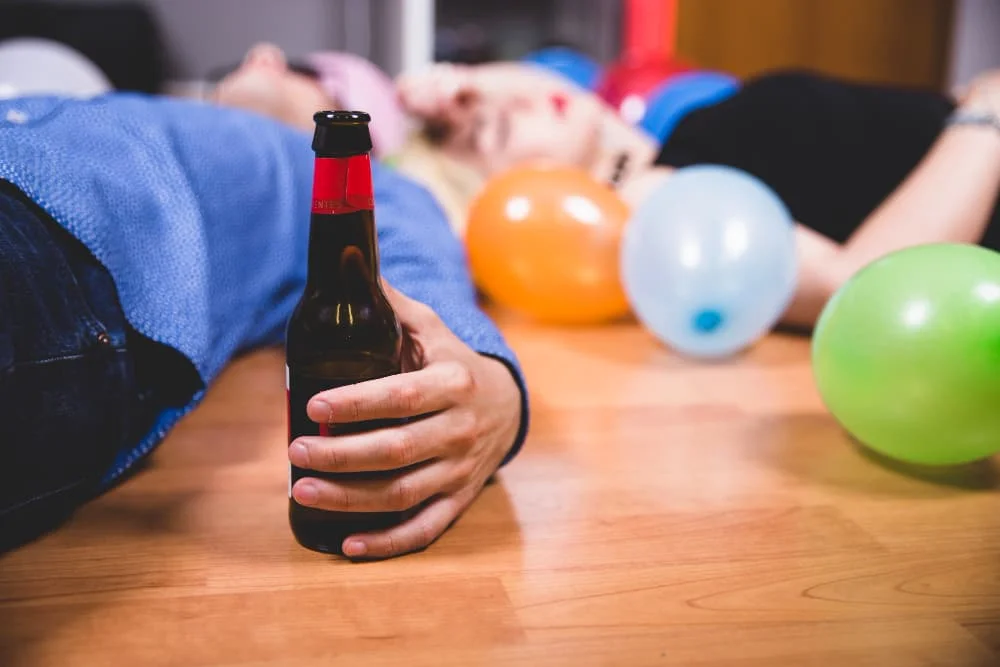
- Amount of Alcohol Consumed: The more alcohol you drink, the higher your BAC will be. This is the most straightforward factor affecting intoxication.
- Drinking Speed: Consuming alcohol rapidly can overwhelm your liver’s ability to process it, resulting in a quicker and sharper rise in BAC.
- Body Weight and Composition: Individuals with a higher body weight, especially those with more muscle mass, tend to have a lower BAC than those with lower body weight after consuming the same amount of alcohol. This occurs because alcohol is distributed in body water, and muscle tissue holds more water than fat.
- Sex: On average, women tend to have a higher BAC than men after drinking the same amount. This difference is due to variations in body water content, enzyme levels (such as alcohol dehydrogenase), and hormonal influences.
- Age: As you age, changes in body composition and liver function may make you more susceptible to alcohol’s effects.
- Food Intake: Eating before or during drinking can slow the absorption of alcohol into your bloodstream. Consuming food, especially high-protein meals, helps reduce the rapid spike in BAC that can occur when you drink on an empty stomach.
- Medications: Certain medications can interact with alcohol, intensifying its effects or leading to adverse reactions. Always check with your doctor or pharmacist about any potential interactions.
- Tolerance: Regular alcohol consumers may develop a tolerance, meaning they need more alcohol to feel the same effects. However, tolerance does not alter the actual rate at which your body metabolizes alcohol; it only affects your subjective experience of intoxication.
Understanding these factors can help you make more informed decisions about your alcohol consumption and explain why different people react to alcohol in different ways.
Best Ways to Avoid Intoxication
While there is no way to instantly sober up after drinking, you can take practical steps before and during alcohol consumption to minimize intoxication. By adopting responsible drinking habits and slowing down alcohol absorption, you can reduce the severity of its effects.
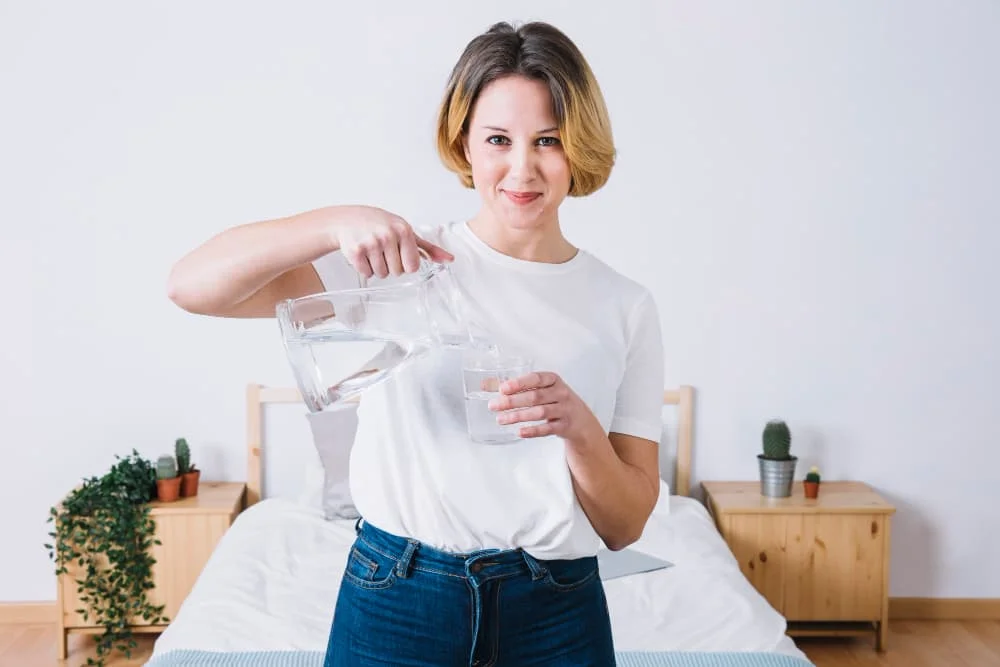
1. Pace Yourself
One effective strategy is to control the speed at which you drink. Sip slowly and alternate alcoholic beverages with non-alcoholic ones, especially water. This practice gives your liver more time to process the alcohol and helps prevent your Blood Alcohol Content (BAC) from rising too quickly.
2. Set a Limit
Decide on a drink limit before you start drinking and stick to it. Knowing your limits and tracking your consumption—perhaps with a drink-tracking app—can help you avoid unintentionally overindulging.
3. Eat Before and While Drinking
Consuming food, particularly those rich in protein and healthy fats, slows the absorption of alcohol into your bloodstream. Eating a meal before you start and snacking while you drink can reduce the rate at which you become intoxicated. Avoid salty snacks since they can increase your thirst.
4. Choose Drinks Wisely
Be aware of the alcohol content in different beverages. Some options, such as cocktails or certain craft beers, may have a much higher alcohol content than standard servings, so choose lower-alcohol alternatives when possible.
5. Avoid Mixing Substances
Never mix alcohol with other substances, including prescription or over-the-counter medications and illicit drugs. Mixing can lead to unpredictable and dangerous interactions that may worsen intoxication and cause serious health issues.
6. Know Your Body
Pay attention to how your body responds to alcohol. Factors like your weight, sex, and overall health influence how quickly you become intoxicated. Understanding your own limits is key.
7. Stay Hydrated
Drinking plenty of water not only helps slow the absorption of alcohol but also supports overall hydration and well-being.
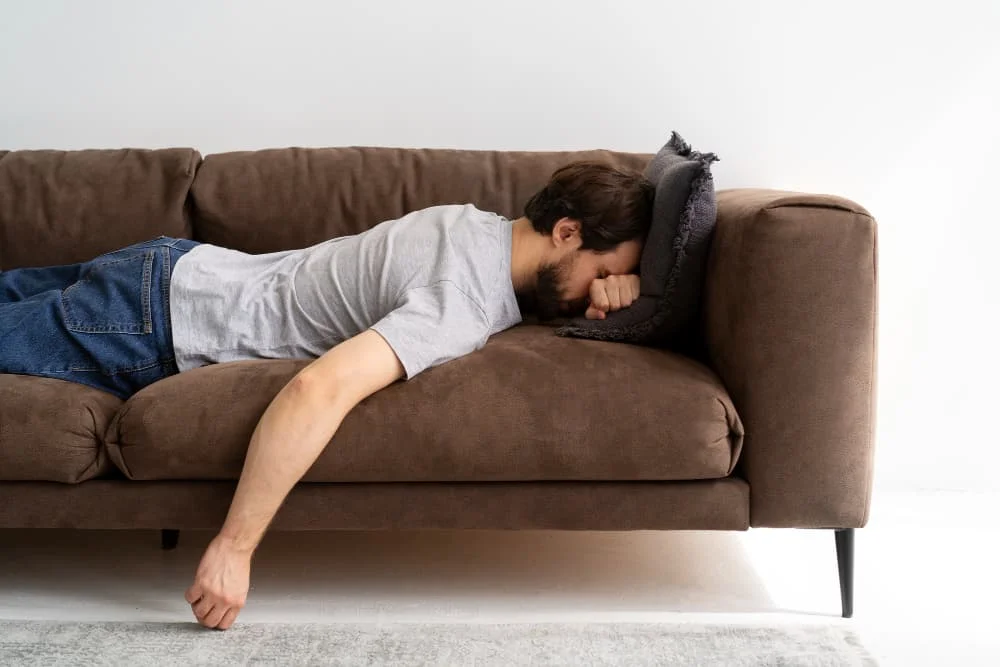
Common Myths About Sobering Up
The internet is full of advice on how to sober up quickly, but most of these so-called “cures” are based on myths and misinformation. The reality is that there are no magic tricks to instantly lower your blood alcohol content (BAC). The only factor that truly reduces your BAC is time. Here are some common myths debunked:
- Myth: Drinking coffee will sober you up.
Reality: Coffee contains caffeine, which may make you feel more alert, but it does nothing to lower your BAC. You might end up feeling wide awake while still being impaired, which can be even more dangerous. - Myth: Taking a cold shower will sober you up.
Reality: A cold shower might help you wake up, but it won’t speed up your body’s process of metabolizing alcohol. Your liver works at a fixed rate, and cold water doesn’t affect that. - Myth: Eating greasy food will absorb the alcohol.
Reality: Eating before drinking can slow down alcohol absorption but eating after you’re already intoxicated won’t help you sober up. In fact, greasy foods might even worsen nausea. - Myth: Exercising or “sweating it out” will help.
Reality: Although a small amount of alcohol may be excreted through sweat, most of it is metabolized by your liver. Exercise has little effect on lowering your BAC and can be dangerous when you’re intoxicated. - Myth: Special supplements or “detox” drinks can speed up the process.
Reality: There is no scientific evidence supporting claims that any supplement or detox product can rapidly reduce your BAC. These products are usually ineffective and can even be harmful. - Myth: Vomiting will help sober you up.
Reality: Vomiting might expel alcohol that is still in your stomach, but it does nothing for the alcohol already in your bloodstream.
The bottom line is that the only true way to sober up is to allow your body the time it needs to process the alcohol. Relying on these myths can lead to dangerous decisions, such as driving while still impaired.
Feeling the Effects? How to Manage Intoxication Safely (and What Won’t Sober You Up Faster)
When you’ve been drinking, there is no magic trick to instantly lower your blood alcohol content (BAC). Only time will do that. However, if you’re feeling the effects, there are ways to manage your symptoms and stay safe while you wait for your body to metabolize the alcohol.

What Doesn’t Work and Why
Many common beliefs about sobering up are simply myths. For example:
- Drinking coffee may make you feel more awake but does not lower your BAC.
- Taking a cold shower can shock you awake, yet it does nothing to speed up the alcohol metabolism.
- Exercising or trying to “sweat it out” might lead to some alcohol being released through sweat, but it has a negligible effect on your overall BAC.
These methods might help you feel a bit better temporarily, but they do not change the rate at which your body processes alcohol.
What You Can Do (Harm Reduction & Symptom Management)
Here are some practical steps you can take to manage intoxication safely:
- Stop Drinking: The first and most crucial step is to stop consuming alcohol immediately. No more alcohol means nothing further will raise your BAC.
- Hydrate: Alcohol dehydrates you, worsening symptoms like headache, dizziness, and nausea. Drink plenty of water or choose electrolyte-rich beverages such as sports drinks without caffeine to help replenish lost fluids and minerals.
- Eat Something (If You Can): If your stomach allows, opt for bland foods like toast, crackers, or bananas. These foods can help settle your stomach and provide a bit of energy. Avoid greasy or heavy foods, which might worsen nausea.
- Rest: Find a safe place to lie down, especially if you feel dizzy. Lying on your side can help reduce the risk of choking if you vomit.
- Stay with a Friend: It is important not to be alone while intoxicated. A trusted friend can monitor your condition and call for help if necessary.
- Pain Relief (with Caution): For a headache, you can take ibuprofen (such as Advil or Motrin). Avoid acetaminophen (Tylenol) when alcohol is in your system since this combination can lead to serious liver damage.
- Antacids: Over-the-counter antacids may help relieve heartburn or stomach upset.
Preventing a Hangover
Although there is no guaranteed cure for a hangover, you can take measures before and during drinking to lessen its impact:
- Eat a Meal Beforehand: Consuming food, particularly high-protein and healthy fats, slows the absorption of alcohol.
- Alternate Drinks: For every alcoholic beverage, have a glass of water. This not only helps you stay hydrated but also slows your alcohol consumption.
- Choose Lighter-Colored Liquors: Darker liquors, like whiskey and rum, tend to contain more congeners—compounds that contribute to hangover severity. Clear liquors, such as vodka and gin, generally have fewer congeners.
- Avoid Carbonated Mixers: These can accelerate the absorption of alcohol.
When to Seek Medical Help
Recognizing the signs of alcohol poisoning is critical, as it is a medical emergency. Seek help immediately if you or someone else experiences any of the following symptoms:
- Unconsciousness or inability to be roused
- Slow or irregular breathing (fewer than eight breaths per minute or gaps of more than 10 seconds between breaths)
- A slow heart rate
- Vomiting while unconscious or inability to sit up
- Seizures
- Pale or bluish skin
- Low body temperature (hypothermia)
If you observe any of these signs, call emergency services immediately. Your safety is paramount, so do not hesitate to get medical help if you suspect alcohol poisoning.
The Real Solution: Give It Time
After exploring how alcohol is metabolized, debunking common myths, and reviewing strategies to manage intoxication, one fact remains clear: there are no shortcuts to sobriety. The only way to lower your blood alcohol content is to give your liver the time it needs to process the alcohol. There is no magic cure.
Prioritize your safety by staying hydrated, getting plenty of rest, and never driving under the influence. If you have concerns about your drinking habits or those of someone you care about, know that help is available. Practicing responsible drinking—such as setting a limit before you go out—is a great place to start.

